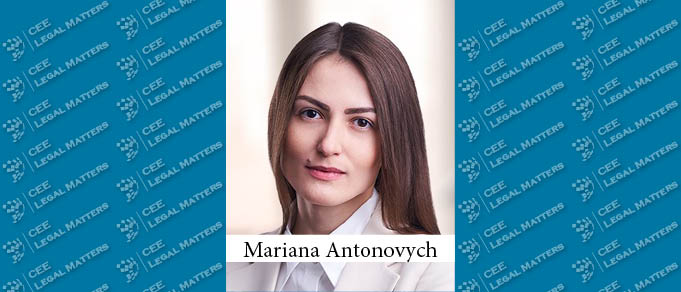On March 16, the International Court of Justice (ICJ) delivered its order on Ukraine’s request for indication of provisional measures against Russia.
By 13 votes to two, it ordered Russia to immediately suspend the military operations that it commenced on Feb. 24 in the territory of Ukraine and ensure that any military or irregular armed units which may be directed or supported by it, as well as any organizations and persons which may be subject to its control or direction take no steps in furtherance of the military operations.
Both Ukraine and Russia were ordered not to aggravate or extend the dispute before the Court or make it more difficult to resolve.
The Court emphasized that in discharging its duty to prevent genocide, every state may only act within the limits permitted by international law. It observed that the Court is not in the possession of evidence substantiating Russia’s allegations that genocide has been committed in Ukraine. Moreover, “it is doubtful that the Convention, in light of its object and purpose, authorizes a Contracting Party’s unilateral use of force in the territory of another State, for the purpose of preventing or punishing an alleged genocide,” the Court added.
Two judges who voted against provisional measures are judge Kirill Gevorgian, a Russian-born Vice-President of the Court, and judge Xue Hanqin from China.
Judge Mohamed Bennouna, a Moroccan diplomat, also voiced doubts as to the Court’s jurisdiction to hear this dispute. However, he voted in favor of the order because he “felt compelled by this tragic situation, in which terrible suffering is being inflicted on the Ukrainian people, to join the call by the World Court to bring an end to the war.”
Some judges also added that whilst they voted in favor of the non-aggravation measure ordered by the Court, they did not believe it should have been directed at Ukraine. Judge Patrick Lipton Robinson also expressed the view that it was “regrettable” that the Court did not grant Ukraine’s request for Russia to provide periodic reports on the measures taken to implement the Court’s order “in view of the very grave situation in Ukraine caused by the military operation.”
The Court’s order came only nine days after the first hearing in Ukraine v Russian Federation.
Instead of showing up at the first hearing, on March 7, Russia filed a document objecting to the Court’s jurisdiction. It complained that the hearing was scheduled on “a short notice” and “it would be difficult, if not impossible, to take all necessary decisions regarding the participation in the proceedings and conduct proper analyses of the Request in five working days.”
Russia also complained that Ukraine attempts to litigate the issues of legality of use of force by Russia in Ukraine and the recognition by Russia of the occupied areas of eastern Ukraine as “Donetsk and Luhansk Peoples’ Republics” using the 1948 Convention on the Prevention and Punishment of the Crime of Genocide (Convention) as a vehicle.
Russia then went even further, reiterating that its so-called “special military operation” amounted to a self-defense under Article 51 of the United Nations Charter, of which it informed the Security Council on Feb. 24.
It also tried to recant its own words by alleging that Russian dictator Vladimir Putin’s reference to genocide in the Feb. 24 address to Russian people was not “equal to the invocation of the Convention or the existence of a dispute under it.”
Russia hasn’t shown any signs of being ready to abide by the Court’s order. Assuming that Article 94(2) of the UN Charter regarding recourse to the Security Council is applicable only to judgements, there are no means to enforce Court’s orders.
On March 16, the Committee of Ministers of the Council of Europe, a human rights watchdog based in Strasbourg, decided that the Russian Federation ceases to be a member of the Council of Europe as from today, after 26 years of membership. For now, the European Court of Human Rights decided to suspend the examination of all applications against Russia pending consideration of the consequences of the Committee of Ministers’ resolution.
This decision came after Russia pre-emptively withdrew from the organization on March 15 in anticipation of expulsion. In its tweet, Russia’s Ministry of Foreign Affairs threatened that “responsibility for destruction of the common humanitarian space on the continent & the consequences for Council of Europe – which, without Russia, will lose its pan-European character – will be borne solely by those who are forcing [Russia] to take this step.”
On the same day, the Parliamentary Assembly unanimously recognized that Russia’s armed attack on Ukraine is “in breach of the Charter of the United Nations, qualifies as crime against peace under Nuremberg Charter and qualifies as “aggression” under the terms of Resolution 3314 (XXIX) of the United Nations General Assembly adopted in 1974.”
The Parliamentary Assembly supported all efforts aimed at ensuring accountability, including the decision by the Prosecutor of the International Criminal Court (ICC) to investigate the situation in Ukraine and the establishment of a special investigation commission by the United Nations Human Rights Council. It repeatedly called upon Russia to comply with the interim measures indicated by the European Court of Human Rights on March 1 and 4, namely, cessation of military attacks against civilians and civilian objects in Ukraine.
By Mariana Antonovych, Senior Associate, Avellum




